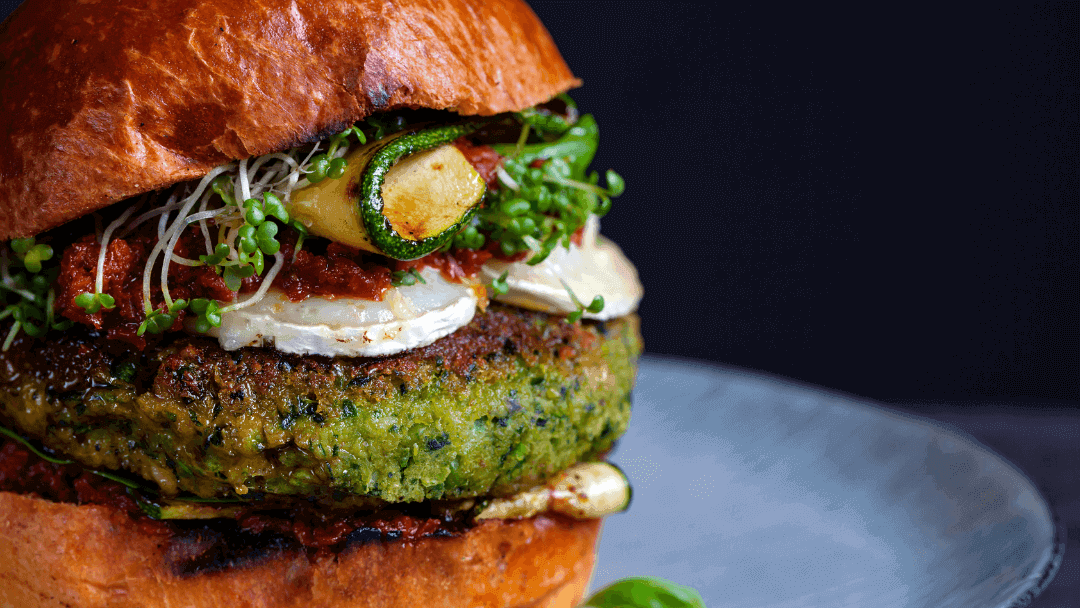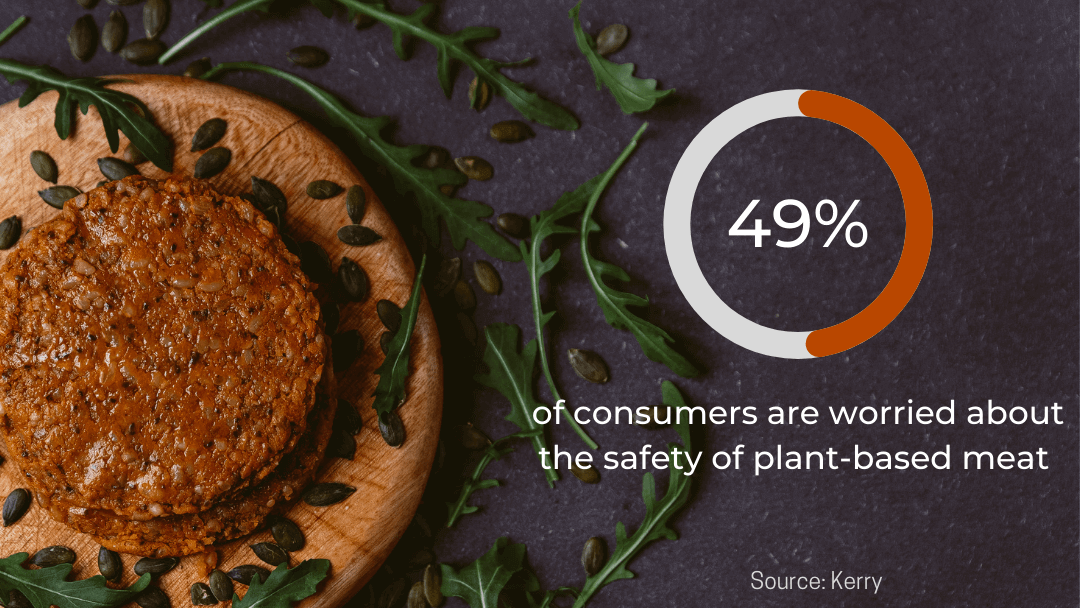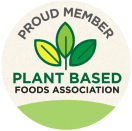Keeping Plant-Based Foods Fresh and Safe With Label-Friendly Solutions

Since the onset of the COVID-19 pandemic, consumers have become increasingly focused on their health and nutrition. And 77 percent of consumers are looking for more ways to stay healthy in the future, according to the research.
The connection between gut health and immunity, personalized nutrition, metabolic health, health and wellness, and plant-based eating are some of the trends that have dominated the consumer market. Eating a plant-based diet has been linked to improved gut health, enhanced immune response, and other health benefits. The increased understanding of the health benefits of eating plant-based has become the driving factor for the fast growth of plant-based food popularity.
To meet the consumer demand for healthier, better-for-you foods, food manufacturers have flooded the food and beverage market with innovative products utilizing plant proteins, plant fibers and starches, and vegetable oils.
Plant-Based Foods And The Risk of Spoilage
2020 was a year of successful growth for the plant-based foods sector, with many new product launches being released on the market, emerging private label and start-up companies, and the opening of novel plant-based product categories. A recent review of plant-based retail sales from the Good Food Institute showed that US retail sales of plant-based foods hit $7 billion in 2020.
The remarkable growth of the plant-based food market and the increased focus on health and wellness corresponded with another major trend incited by the COVID-19 pandemic -- food safety concerns significantly escalated among consumers in 2020.

Food Safety In The Spot Light
Food safety has become a substantial concern among consumers in the past year. In fact, the research has shown that 60% of consumers are more worried about food safety than they were before the Coronavirus pandemic. While fresh meat is still a concern for two out of three consumers, almost half of consumers were worried about the safety of meat analogues as well. When it comes to plant-based foods, more than half of consumers are also concerned about the safety of plant-based dairy.
Plant-Based Analogues Raise Food Safety Concerns
One of the fastest-growing plant-based food categories is meat alternatives. Consumers are likely concerned about food safety in plant-based meat due to general unfamiliarity with the products. Unlike animal meat, there is no easy way to tell whether a plant-based meat product has expired or 'gone off' by looking at it or even smelling it. At the same time, pathogenic and spoilage risks in plant-based meat alternatives and in animal meats are equally high. Pairing unfamiliarity with the number of food recalls that customers have seen in the news, it is no surprise that there is a growing concern among consumers about plant-based food safety.
Contamination Risks In Plant-Based Meats Are Same As In Animal Meats
Plant-based meat alternatives are subject to microbial contamination just like fresh meat products. Given the fact that many plant-based foods including meat alternatives are neutral in pH, contain water, protein, and may contain a source of carbohydrate, they offer a perfect environment for pathogenic and/or spoilage organism growth.
"Risks of spoilage in plant-based meats are high. Consumers want to eat plant-based foods because they are good for their health and well-being and be confident that they are purchasing quality and safe products. It is indeed the manufacturers' responsibility to have good manufacturing practices in place and have formulations containing select ingredients to keep plant-based foods safe and fresh throughout shelf life," highlights O'Neill, VP of Sales and Business Development at A&B Ingredients.
Finding Solutions to Plant-Based Food Safety Challenges
Developing robust formulations for plant-based foods is one of the ways food manufacturers can address food safety, quality, and food protection challenges. Such robust formulations will include solutions for food safety (pathogenic bacteria control) and food quality control. Food protection means maintaining freshness (color, smell, and taste) and may also include yeast, mold, and oxidation control.
"At A&B Ingredients, we regard 'food safety and quality' ingredient solutions as a means to protect foods. Freshness is synonymous with maintaining quality in foods and may include color and flavor preservation and oxidation control measures. Preventing oils and fats from oxidizing can keep food fresher longer. We have developed plant-based ingredient solutions to address natural shelf life extension. Our CytoGUARD® portfolio of products offers solutions for food safety (pathogenic bacteria control) as well as solutions for spoilage organism control. In addition, we offer ingredient solutions to maintain quality and extend the shelf life of foods," says O'Neill.
"In summary, we support manufacturers and help formulators build robust formulas to prevent spoilage, preserve color, flavor, and taste, and inhibit bacterial growth. We have versatile solutions that help formulators find a customized approach to food protection. CytoGUARD® is the answer to most food protection challenges," explains O'Neill.
Pathogenic contamination, mold growth, oxidation, and other processes that spoil food happen in plant-based foods, just like in traditional food products.
"Building trust and making quality products that are safe for consumers is a manufacturer's responsibility. A&B Ingredients and its renowned CytoGUARD® ingredient portfolio is a proven and valuable resource for food manufacturers who want to keep their foods safe and fresh longer,"-- says O'Neill.
Learn more about our CytoGUARD® portfolio of food safety and quality products.
How Can We Help?
We are here to help you with development of new and improved food products. Our technical service and sales teams can assist you in choosing the right ingredients best suited for your applications.
Product CatalogContact Us
